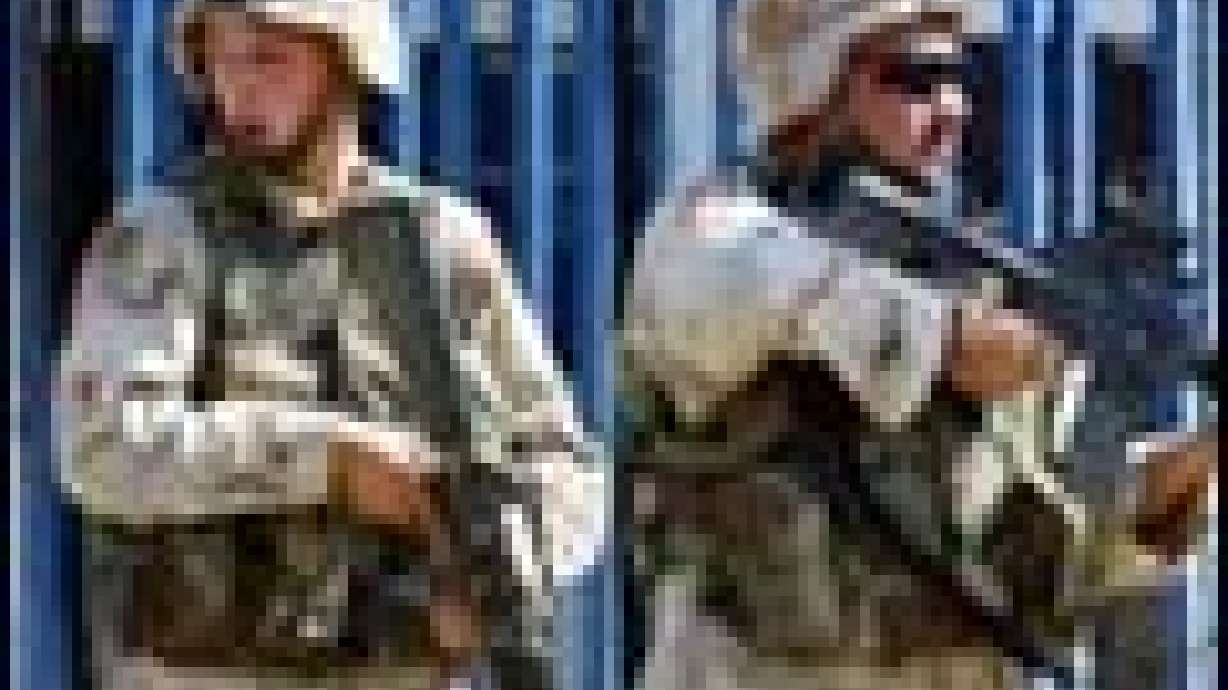Estimated read time: 4-5 minutes
This archived news story is available only for your personal, non-commercial use. Information in the story may be outdated or superseded by additional information. Reading or replaying the story in its archived form does not constitute a republication of the story.
WASHINGTON (AP) -- Some U.S. troops may have to stay for yearlong tours of duty in Iraq to fight an increasingly organized "guerrilla-type campaign" from Saddam Hussein loyalists, the war's American commander said.
Terror groups are reviving, too, Gen. John Abizaid told reporters Wednesday. But he said the threat was nothing American troops couldn't handle.
Abizaid credited attackers with improved organization, tactics and financing as he suggested American soldiers may face deployments of a length seldom seen since the Vietnam War.
However, he pledged that soldiers in the Army's longest-serving unit in Iraq, the 3rd Infantry Division, would be on their way home by the end of September. Other U.S. troops will be given a firm homecoming date.
"It's very, very important to all of us to make sure that our soldiers, sailors, airmen and Marines know when they're coming home," Abizaid said at a Pentagon news conference.
He suggested that comments by a few soldiers in an interview with ABC-TV -- including one who said he wanted to ask Defense Secretary Donald H. Rumsfeld to resign -- simply show the frustration of young people who are ready to go home.
"Every now and then we've got to look at our young people and understand why they said what they said, and then do something about it," Abizaid said. He declined to speculate on whether those soldiers could face punishment but added: "None of us that wear this uniform are free to say anything disparaging about the secretary of defense, or the president of the United States."
Before they go home, those troops undoubtedly will face more attacks from former members of Saddam Hussein's Baath Party and from terrorist groups who want to derail Iraq's transition to democracy, Abizaid said. He spoke on a day when attackers killed the pro-American mayor of a northwestern Iraqi town and a U.S. soldier in Baghdad.
While the attacks on U.S. forces are becoming increasingly sophisticated, they are nothing the American troops can't handle, Abizaid said.
"They're not driving us out of anywhere," the general said.
Abizaid's use of the term "guerrilla warfare" was a striking departure for a top military leader. As recently as last week, Defense Secretary Donald H. Rumsfeld and other Pentagon officials refused to use the term, saying attacks on U.S. forces were too sporadic and disorganized to qualify as a guerrilla campaign.
Abizaid, who took over last week as commander of U.S. forces in Iraq, said guerrilla warfare was the proper term.
"It's low-intensity conflict in our doctrinal terms, but it's war however you describe it," Abizaid said.
Midlevel Baath Party operatives have organized themselves into cells of perhaps 10 people. With some regional coordination and financing, those cells plan attacks on American forces with improvised bombs, machine guns, rocket-propelled grenades and other weapons, Abizaid said.
Terrorist groups pose another threat to American forces, he said.
Those groups operating inside Iraq include Ansar al-Islam, an al-Qaida-linked organization whose camp in northern Iraq suffered devastating attacks from U.S. forces in the early stages of the war in Iraq. Ansar al-Islam appears to be regrouping in Iraq, possibly aided by members coming from Iran, Abizaid said.
Other non-Iraqi fighters have ideological sympathies for al-Qaida leader Osama bin Laden, if not orders from him to attack Americans, he said.
Wednesday's unsuccessful missile attack on a C-130 cargo plane landing in Baghdad was the second in as many weeks, Abizaid said. U.S. commanders remain worried about the threat from shoulder-fired anti-aircraft missiles, the general said.
Abizaid said he was recently a passenger in a C-130 over Iraq when the pilot and other troops swerved the plane and fired flares to avoid a possible missile launch.
"These were guys from the Oklahoma National Guard, and they actually thought it was fun. I was terrified," Abizaid said.
About 148,000 U.S. troops are in Iraq, bolstered by an additional 12,000 or so from coalition countries, mainly Britain and Poland. The number of troops in Iraq is about right for the next several weeks, at least, Abizaid said.
"I think our current force levels are about right," Abizaid said. "If the situation gets worse, I won't hesitate to ask for more."
they were going home by September, only to hear over the weekend their return had been put on hold. Abizaid said he was confident that other Army troops, Marines, or international forces would be available to replace them.
Some of the American troops coming into Iraq could be there for a year, Abizaid said. Yearlong deployments, a norm during the Vietnam War, have been rare in recent years. The 1st Armored Division served in Bosnia for a year during the 1990s, Abizaid said.
"So we've done it before, and we can do it again," he said.
(Copyright 2003 by The Associated Press. All Rights Reserved.)








